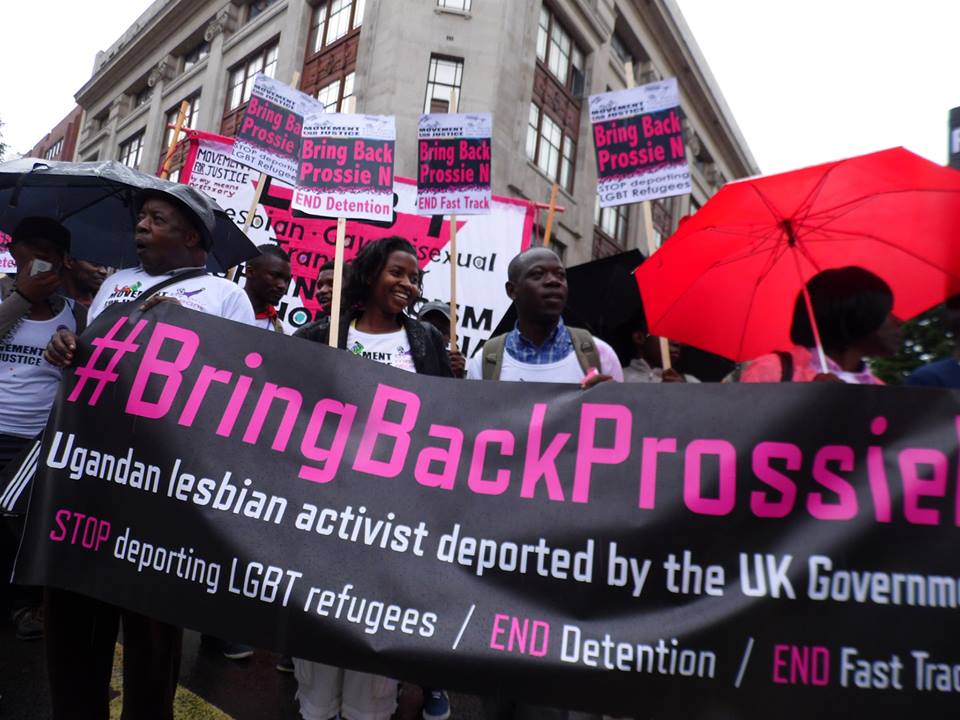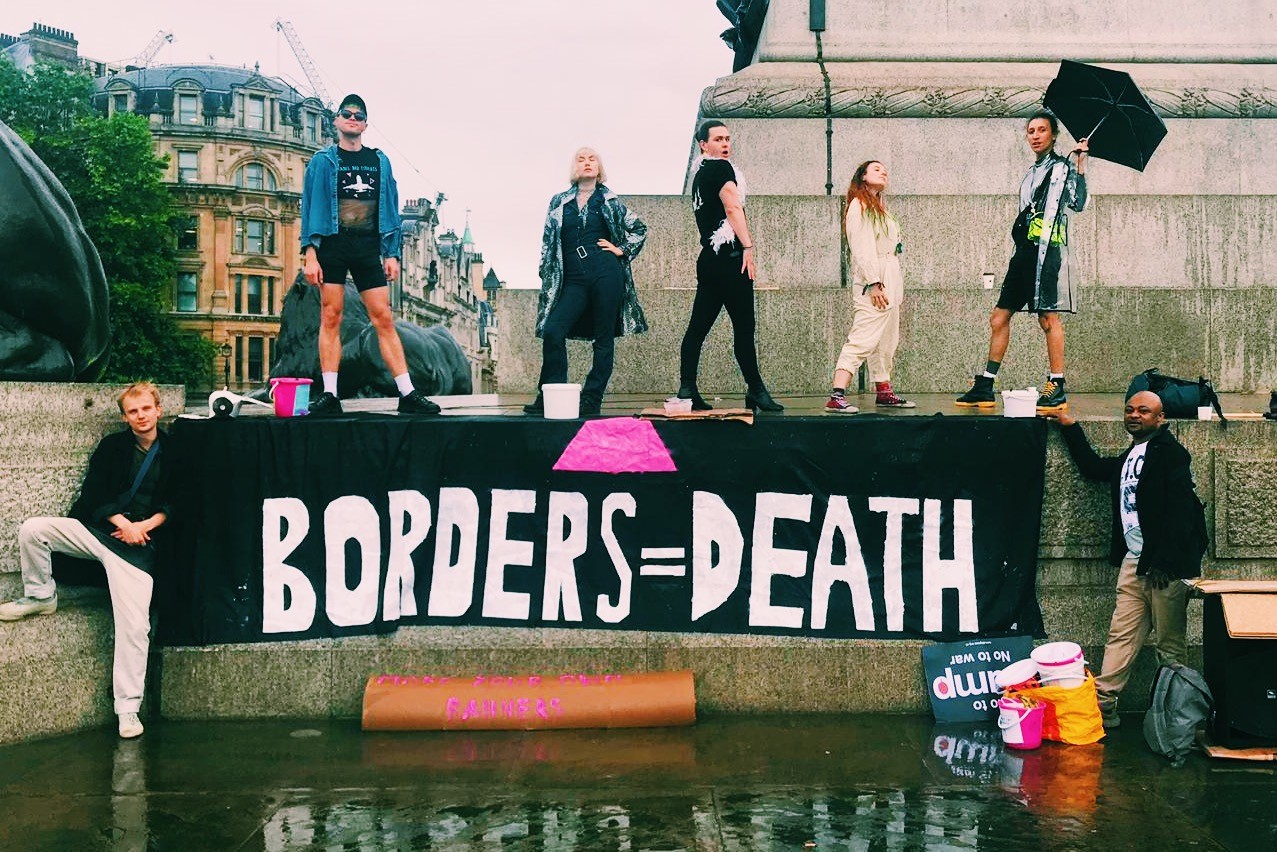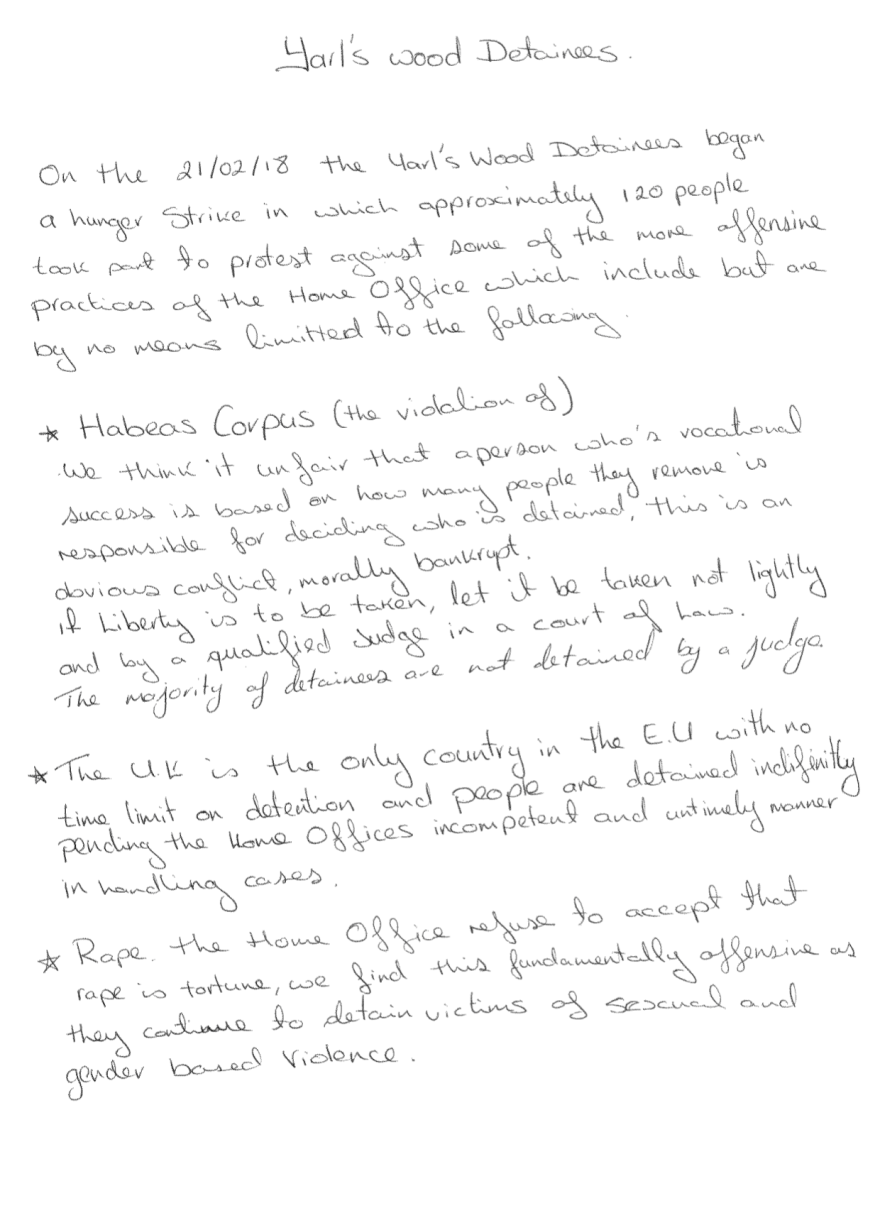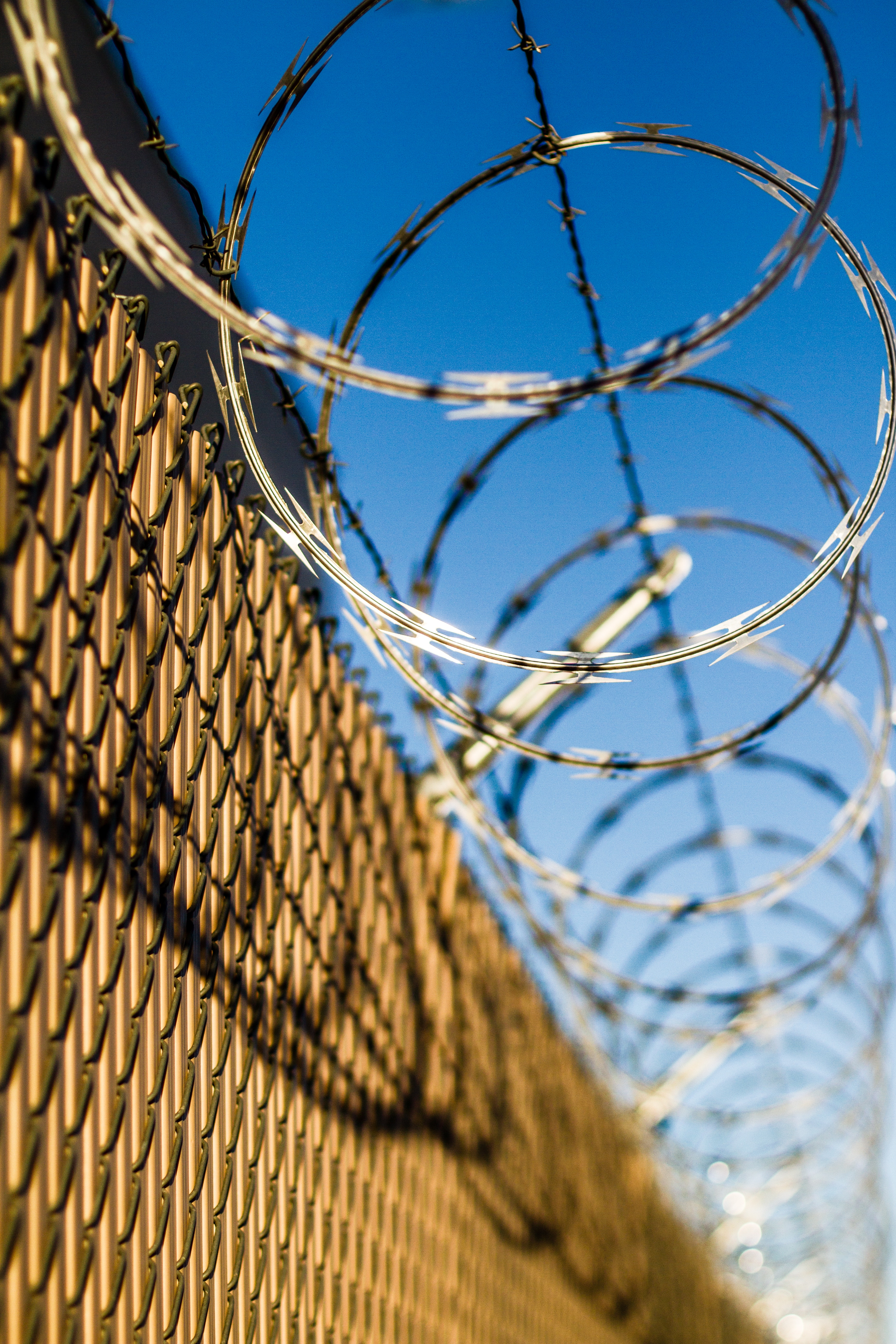
Shut Them Down: justice for Prossie N challenges abusive UK asylum system
Annabel Crowley
21 May 2017
The UK border and its agents have gained notoriety not only for their systemic abuses against people seeking asylum, but for the cynical concealment of those abuses. More than 32,000 people were held in UK detention centres in 2016, an 11 percent increase from 2015. Tens of thousands of people are harmed by UK asylum policy every single year. They are reviled and stigmatised in the mainstream UK media, routinely stripped of their names, stories and agency.
How can we push back against this insidious attack on some of the most vulnerable people in our communities? We can speak their names, tell their stories and demand justice until it is won.
Prossie N was deported to Uganda in December 2013, after being detained for five months in Yarl’s Wood IRC and fighting off two previous attempts by the then UK Border Agency (UKBA) to deport her. Prossie’s story is pivotal to ongoing efforts which challenge the UK government’s cruel asylum system. She was one of thousands deported under the abusive (and now officially “unlawful”) Detained Fast Track (DFT) system and yet – more than three years on – she is still fighting for her right to return to the UK.
Prossie first came to the UK in 2010 at the age of only 17, escaping the threat of violence and persecution in Uganda. She was outed as a lesbian by a family member aged 15, after which she was forced to live mostly on the streets until she fled to the UK. Former British colonies like Uganda are “much more likely to have laws that criminalise homosexual conduct than former colonies of other European powers” because the legal systems enforced by British colonial powers included the criminalisation of homosexuality. Holding the UK to account for Prossie’s suffering does not begin with Prossie’s detention in Yarl’s Wood, 2013, but with the imposition of British laws in Uganda, 1894.
The Detained Fast Track (DFT) system was introduced in 2000, and was in use until its suspension in July 2014 when the High Court ruled it unlawful. Under DFT, asylum claims were decided whilst asylum seekers were held in detention centres, for rapid processing of claims. In practice, this meant that asylum cases like Prossie’s were arbitrarily fast-tracked when very little was known about the claimant’s situation.
Vulnerable people were detained under DFT, including victims of torture, gender-based violence and homophobic persecution. These were people who had fled imminent danger, yet were burdened with evidencing their cases while detained in immigration removal centres with very limited access to outside support. According to the High Court ruling, more than 10,000 asylum seekers have been treated unfairly under DFT. If these instances of mistreatment are successfully challenged, the UK’s detention estate (the largest in Europe) and notorious asylum system could suffer an unprecedented defeat.
Prossie’s case is a rare opportunity to challenge the UK government directly on the violent mistreatment of an asylum seeker under DFT. Once people are removed from the UK, it is usually very difficult to keep in touch with them. Prossie is still in contact with people in the UK, and is not giving up the fight to come back to the UK. She has faced numerous security scares in Uganda: a past relationship was exposed and people have threatened to inform the police on her. Prossie has been recognised by someone from her past, and her hiding place has garnered sudden spates of attention, leaving her in constant fear of discovery and arrest. Prossie is not safe, and needs to return to the UK for the reconsideration of her asylum claim.
In a powerful interview recorded in 2014, Prossie tells her story, including the life she tried to escape in Uganda, her time in the UK and her eventual detention in Yarl’s Wood and deportation. She was told repeatedly by UKBA that she could return to Uganda, despite the post-traumatic stress she faces after her suffering there.
“In our country you can’t live as a lesbian. I’m in danger from the government […] They told me I can go back to my country, and I can go to another village […] even if I go to another village, it’s going to be the same. I told them that I don’t want to be in hiding”
Despite the complexity of Prossie’s case, she describes not being spoken to or listened to during case hearings. She was also not given sufficient time to gather evidence in support of her asylum case.
“My lawyer talked, and the Home Office lawyers talked, but me, they never asked me … You can’t get the evidence in two days or one week, they don’t give you time for you to gain the evidence they want”
Prossie has also been interviewed by national news outlets about the sexual harassment she faced in Yarl’s Wood.
Since being deported Prossie has been battling with rapidly deteriorating health problems. Because she is forced to live in hiding, it is difficult and dangerous for her to access the medical treatment she urgently needs. She is fighting to survive.
Members of anti-detention campaign group Movement for Justice (MFJ) remain in regular contact with Prossie, fundraise extensively for her medical treatment in Uganda, and continue to fight tirelessly for her return to the UK. A few weeks ago, MFJ supporters rallied outside the Immigration Tribunal that was in session to decide whether to revoke old deportation decisions under DFT (including Prossie’s case) and entitle victims to new appeals.
After more than three years of tireless campaigning to bring Prossie home, Movement For Justice are reaching a pivotal point in their fight. MFJ are launching a crowdfunding campaign to send a filmmaker to Uganda. The filmmaker will bring vital medical supplies for Prossie whilst documenting and exposing the reality of deportation and the UK government’s treatment of asylum seekers. MFJ hope to use the film as evidence in future asylum cases, as well as an educational resource about why and how people seek refuge in the UK.
At a time when the systemic abuse of migrants and undocumented people is rife, many of us struggle to find ways to resist and enact change. The racist immigration system in the UK is so monstrous that it can seem crushing and inevitable. Prossie N’s case is monumental, because her case sets an important legal precedent. Prossie’s return to the UK could trigger the return of many more people who have been wrongfully and violently deported.
We can resist the injustice of detention and deportation, and fresh attempts to inflict new fast-track systems by Theresa May’s government. We can lay bare the grim reality faced by people seeking asylum in the UK. By supporting Prossie, we can help to bring her home to the people that love and support her. By speaking her name, we can throw light on her story and demand justice from the UK government for its abuses against her and thousands of other asylum seekers.
You can visit Movement For Justice’s crowdfunding campaign for Prossie N here.
This piece is part of gal-dem‘s #ShutThemDown series, exploring the UK’s immigration detention estate which indefinitely incarcerates over 30,000 people a year. A disproportionate percentage of the UK’s detention population are working class people of colour, and asylum seekers.

Britain’s policing was built on racism. Abolition is unavoidable

How Pakistan’s Khwaja Sira and transgender communities are fearing and fighting for their futures

Their anti-rape performance went viral globally. Now what?






